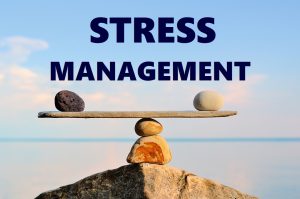Stress and Its Impact
Stress is an unavoidable part of life, but its effects on our physical and mental well-being can be profound. When managed poorly, stress contributes to a variety of health concerns, including heart disease, anxiety, depression, and even compromised immune function. It is no surprise, then, that learning to handle stress effectively has become a vital component of maintaining a healthy lifestyle. This article explores practical strategies for managing stress and fostering a healthier mind and body.
Understanding Stress: Types, Causes, and Effects
To manage stress effectively, it’s essential to understand it. Stress generally falls into two categories—acute stress and chronic stress. Acute stress is short-term and arises from immediate challenges, like project deadlines or arguments. Chronic stress, on the other hand, lingers over time and can stem from ongoing problems such as financial struggles or work-related pressure. Stress triggers can vary wildly, yet they share a common trait—impacting your mood, productivity, and health. Over time, unchecked stress can damage not only your emotional well-being but also your physical body, manifesting as headaches, high blood pressure, and digestive issues.
Mindfulness and Meditation Techniques
Mindfulness and meditation are powerful tools in neutralizing stress. These practices encourage you to focus on the present moment, helping clear your mind of overwhelming thoughts. Meditation aids in lowering cortisol levels, a key stress hormone, and enhances emotional balance. Whether it’s a 10-minute guided meditation or simply taking deep breaths during a hectic day, incorporating mindfulness into your routine can significantly ease stress levels.
Physical Exercise for Stress Relief
Exercise is a proven way to combat stress and boost overall well-being. When you move your body, your brain releases endorphins—feel-good chemicals synonymous with lifting your mood and reducing stress. These benefits aren’t exclusive to intense workouts; even a brisk 20-minute walk can have a remarkable effect on lowering anxiety and calming the mind. Whether you enjoy yoga, running, swimming, or dancing, any form of physical activity can work wonders for stress relief.
Nutrition and Diet’s Role
What you eat directly impacts how your body manages stress. A well-balanced diet rich in fruits, vegetables, whole grains, and lean proteins can provide the nutrients necessary to support brain and body function during stressful periods. Foods high in antioxidants, omega-3 fatty acids, and B vitamins are particularly effective in reducing cortisol levels and promoting calmness. On the flip side, minimize your consumption of caffeine, sugar, and processed foods, which can heighten stress and exacerbate feelings of anxiety.
Sleep Hygiene and Stress Reduction
A restorative night’s sleep significantly improves your ability to manage stress. Unfortunately, stress often disrupts sleep, creating a vicious cycle of irritability and anxiety. Maintaining good sleep hygiene by sticking to a consistent bedtime, creating a calming wind-down routine, and limiting screen time before bed can transform your sleep quality. Aim for 7-9 hours of uninterrupted rest to give your mind and body the recovery it needs.
Social Connections and Support Systems
As social beings, humans thrive when surrounded by strong support systems. Nurture your relationships by connecting with friends, family, or a trusted confidant who can provide emotional support during trying times. Simply talking about your struggles can help you process emotions and gain perspective. Better yet, engage in stress-free social activities such as shared hobbies, group fitness classes, or even a casual coffee outing to reap the dual benefits of connection and relaxation.
Time Management and Organization Skills
Poor time management can turn minor stressors into seemingly insurmountable obstacles. Effective organization lets you regain control and eliminates the chaos that feeds anxiety. Use tools like planners, to-do lists, or time-blocking techniques to prioritize tasks and create a clear roadmap for your day. By breaking larger goals into smaller, manageable steps, you can reduce procrastination and feel a greater sense of accomplishment.
Setting Boundaries and Saying No
One of the most overlooked stress management strategies is learning to set clear boundaries and saying no without guilt. Aligning your commitments with your personal and professional priorities helps prevent overcommitting and stretching yourself too thin. Establishing boundaries creates personal space and enables you to focus energy on what truly matters, leaving you less susceptible to burnout.
Professional Help and Therapy Options
There are times when professional intervention becomes a necessity. Mental health professionals, therapists, and counselors specialize in helping individuals cope with chronic stress and its underlying causes. Therapies such as Cognitive Behavioral Therapy (CBT) or mindfulness-based stress reduction programs can provide specific tools and techniques tailored to your personal needs. Don’t hesitate to seek help—investing in your mental health is one of the smartest decisions you can make.
Long-Term Strategies for a Stress-Free Life
Stress management isn’t a one-time fix—it’s a lifelong practice. Cultivating habits such as gratitude journaling, continuous learning, or taking up new hobbies fosters personal growth and resilience against life’s challenges. Regularly reviewing your priorities and making adjustments as needed ensures that stressors don’t take root. By embedding self-care and balance into your daily life, you create a strong foundation for ongoing peace of mind.
Embracing a Balanced Lifestyle
Managing stress is not about eliminating it entirely—it’s about controlling how you respond to it in a way that promotes well-being. By dedicating yourself to strategies such as mindfulness, exercise, and nurturing relationships, you pave the way for a healthier, happier, and more productive life. Stress may be inevitable, but it doesn’t have to control you. Every step you take to create balance leaves a lasting impact on both your mind and body that will carry you toward a more fulfilling future.
FAQ
What are the symptoms of chronic stress?
Common symptoms include persistent fatigue, irritability, headaches, difficulty concentrating, and changes in appetite or sleep patterns. Long-term effects may manifest as hypertension, anxiety disorders, or digestive issues.
Is meditation effective for everyone?
Meditation offers benefits for most people, but its effectiveness can vary based on personal preferences. Try different practices, like guided meditation, visualization, or progressive muscle relaxation, to find what works best for you.
How much exercise do I need to lower stress?
Experts recommend at least 150 minutes of moderate aerobic activity per week. However, consistency is key—even brief, daily movement can impact stress positively.
When should I seek professional help for stress?
If stress begins interfering with your ability to function in daily life or leads to physical symptoms like chronic insomnia or severe anxiety, consulting a professional is advised.
Can diet alone reduce stress?
While diet plays a pivotal role, it’s most effective when combined with other strategies like exercise, proper sleep, and mindfulness practices to manage stress comprehensively.




